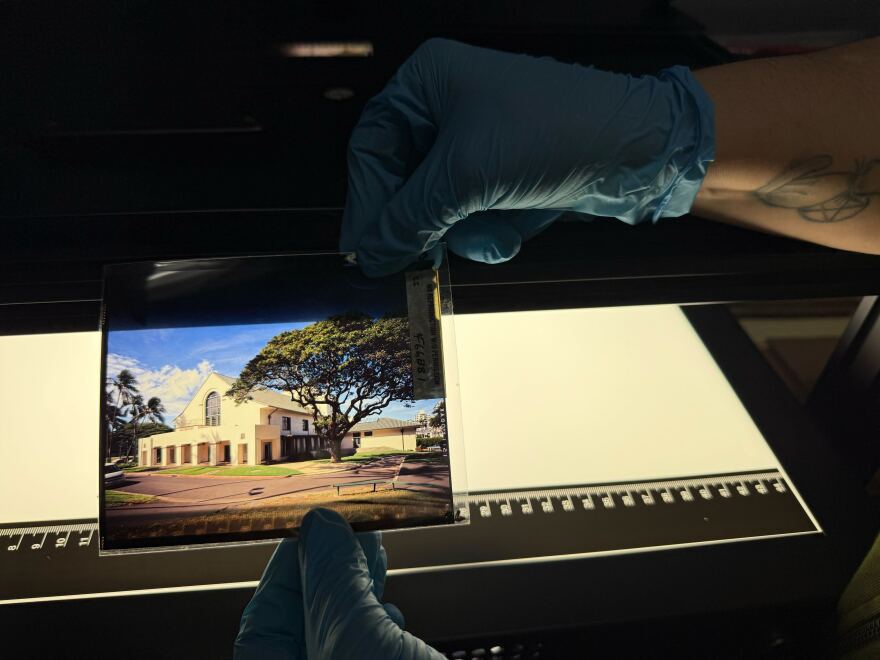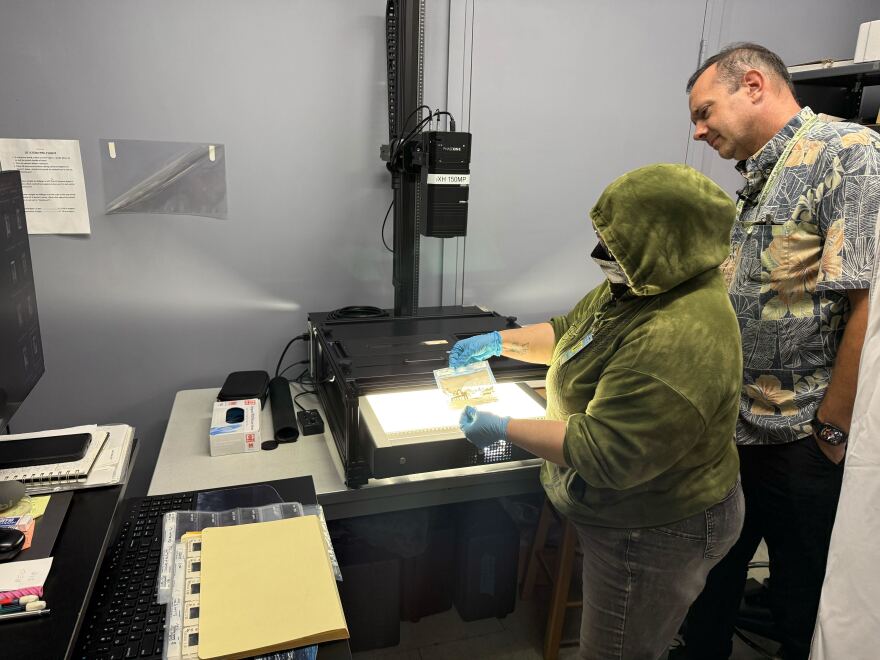Tucked in a corner of a dark room within the Hawaiʻi State Archives, a digitization specialist scans a transparent photo of the inside of Punahou School's Dillingham Theater.
At first glance, it's hard to tell what the photo is because itʻs a negative.
But after the specialist transfers the image to a computer, a clear picture emerges of rows of seats facing the center stage. The photo was taken in 1994 after the theater’s renovation.
The Hawai‘i State Archives is in the process of digitizing and preserving an extensive photography collection by David Franzen, an architectural photographer in the islands. These images go back four decades and were scanned by the most advanced camera for archival work.
“Some of the photographs we have – beautiful,” said state Archivist Adam Jansen.
But the state archives lost its federal funding this year to help with the preservation effort. It was a $213,000 grant by the Institute of Museum and Library Services’ Native American/Native Hawaiian Museum Services grant.

Jansen said that the archives already hired a contract worker to digitize 45 boxes of Franzen's work before they found out their grant was canceled.
“What we are being negatively impacted on is making these resources available globally, so that anybody, anywhere at any time can have equal access to that knowledge and that information,” Jansen said. “That’s critical."
Jansen said the state archives had to cover the costs of the preservation work.
The state archives, which is a division under the state Department of Accounting and General Services, had a roughly $1.5 million operating budget. Jansen said 85% of the funding goes to cover staff costs while 15% is for archival work and other operations.
Hawai‘i is one of 21 states that sued the Trump administration. The lawsuit states that the executive order to dismantle IMLS and other small federal agencies is illegal.
Last month, the U.S. First Circuit Court of Appeals ruled that the IMLS must remain open pending resolution of the government’s appeal.
Jansen said the work to archive written documents and photos is critical to preserve Hawaiʻi’s past. He emphasized the need to make it accessible to the public virtually.
“We look at the tragedy of Lahaina and how much was lost there that we need to do better as memory institutions,” Jansen said. “Which means we need that funding because we're underfunded and understaffed, universally across the board, yet what we have is so critical and so irreplaceable."
Hawaiʻi Public Radio exists to serve all of Hawai’i, and it’s the people of Hawai’i who keep us independent and strong. Help keep us strong to serve you in the future. Donate today.




